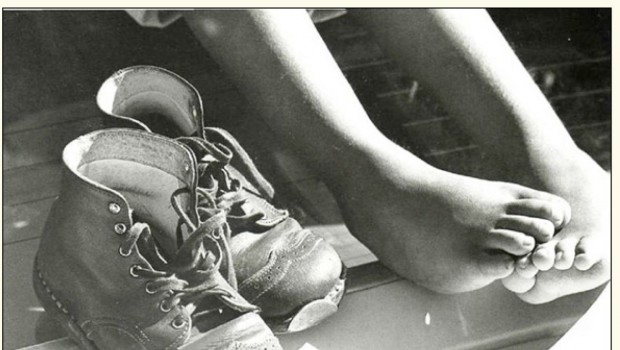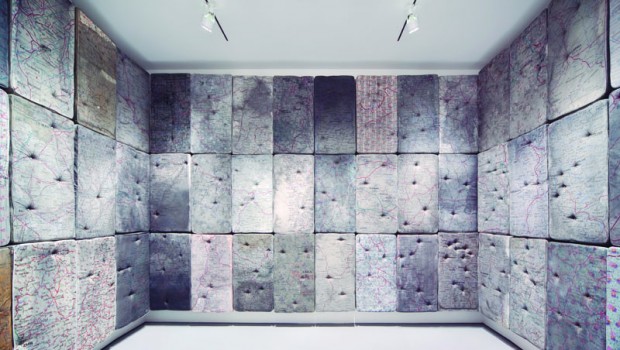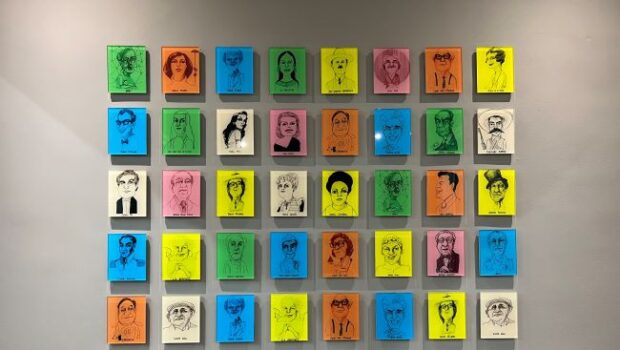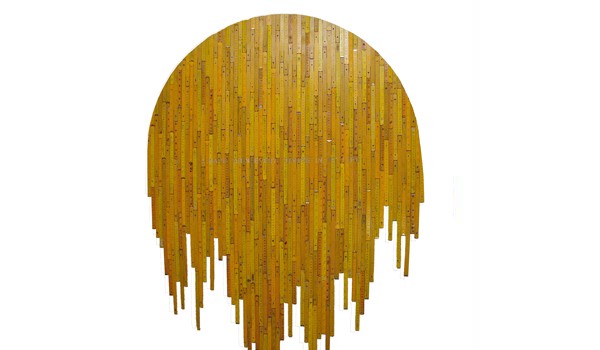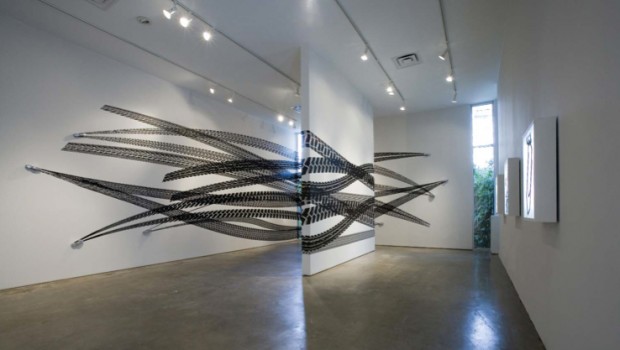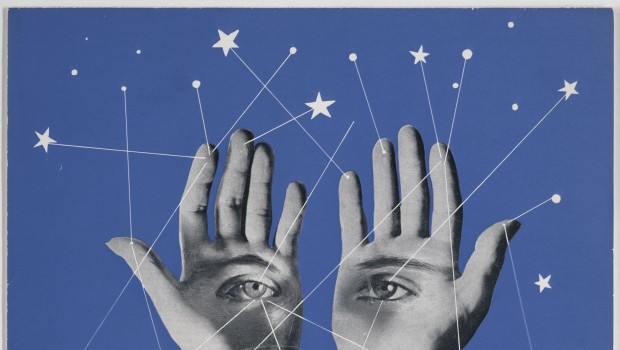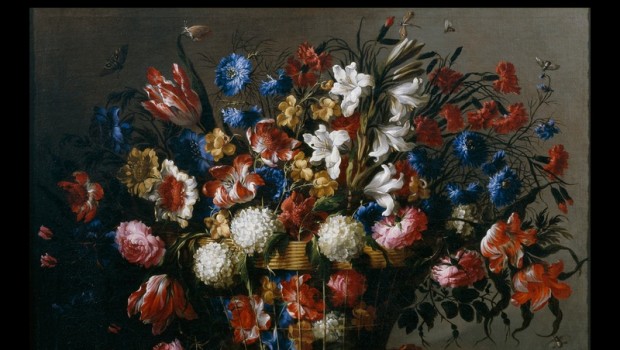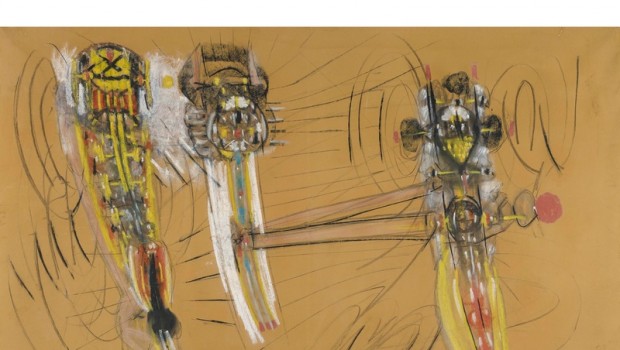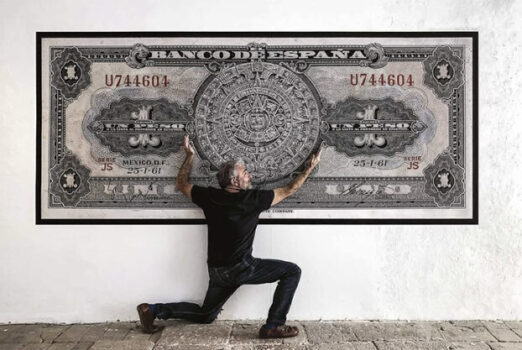A Life Involved (Part I)
Fernando Castro
Part I: Read between the lines
People in the world of photography —from Buenos Aires to Beijing— are familiar with Wendy Watriss. Most of them know her and her lifetime partner, Fred Baldwin, as the head honchos of FotoFest, the photography biennial that started in Houston in 1986. A few also know her own photographic work; most notably, her essay on the devastating effects of Agent Orange on the American troops during the Vietnam War. Although I have known Wendy for over twenty years, I too ignored key facts about her life. A few months ago, I met her at a Houston café where we taped the interview on which this piece is based.
Born in San Francisco to James Barney Watriss, a career diplomat, and Lorraine Ames, adventurer, philanthropist and international traveler, Wendy spent her early childhood in The City by the Bay. In 1951, after living briefly in New York, her whole family moved to Greece. The fratricidal Greek civil war that split up that country into the two camps that were to define the Cold War had come to a harrowing end in 1949.
“My father worked for the State Department,” Wendy says. ““In the diplomatic service?” I ask. “In the U.S. diplomatic service, yes. My father was an aviation expert as well. You can read between the lines,” she chortles and goes on, “Greece was a very strategic place at that point of the Cold War in the early 1950’s. I went to a British school there, but most of the people I knew were Greeks.” Wendy’s father was a sailing enthusiast. As a result, her family and friends traveled the Mediterranean on a boat he had built. “One of the things that was painfully and indelibly etched on my memory is going to these blazingly white hot villages where there would be nobody except women in black. That visual memory is very strong. It is the kind of image that Greek-American photographer John Demos captured. That was what you saw in the countryside because a large percentage of the male population in Greece had been killed during World War ll and the Greek civil war.”
After her Aegean childhood, Wendy went back to San Francisco, but when her father was once again deployed to Europe, she stayed at Garrison Forest, a girl’s preparatory school in Maryland. “After boarding school, I was so sick of girls’ school, I decided —to everybody’s horror— not to apply to college,” she says laughing mischievously. “I was supposed to apply to one of the women’s colleges on the East Coast —like Bryn Mawr. Instead I went to Europe and studied at the University of Madrid as part of the New York University junior-year-abroad program. Then I went to Paris for a year to study at the Sorbonne —and although I wasn’t studying very seriously, I certainly was gaining life experience. In 1962 I returned to New York and enrolled in an advanced program at NYU. I completely fell into the lifestyle of New York. I finished college with a double major in philosophy and English literature.”
Armed with knowledge of philosophy and English literature, and her concern for the political issues of the time, Wendy searched for a newspaper job. “At the time the only credible newspapers were The New York Times, The Washington Post, and The Herald Tribune. But in any of those papers, women had to start in the women’s department —which I thought was a horrible thing. When I interviewed at Time and Newsweek, most women were assigned to the research department for two to eight years before they had the chance to move to reporting.” Wendy ended up getting a job as a general assignment reporter covering city politics at The Saint Petersburg Times in Florida. After working for that newspaper for two-and-a-half years Wendy earned a promotion to the Tallahassee bureau to cover state politics. However, she decided it was time to leave Florida.
Wendy recollects, “At that time Fred Friendly, who had left CBS for the Columbia School of Journalism, founded a very exciting program called the Public Broadcast Laboratory, the predecessor for PBS. It was an experiment in public television that brought together ‘bright talent’ from the print media and the television media in order to develop a prime-time Sunday night national public television program about culture and political affairs.” Wendy applied for a job at PBL and she got it. She eagerly moved back to New York. “First I was a research and then an associate producer, doing primarily political documentaries. It was a very progressive liberal program with very talented and professional people.”
At PBL Wendy and Joe Russin, a young man who had headed the Harvard Crimson newspaper and had been a reporter at Newsweek, co-produced the documentary Marihuana and the Law. Today the show would have been praised for its informational value, but at the time it turned out to be not only controversial but also perilous for its authors. Wendy recalls, “Around 1966 there was a huge discussion about drug use. In Marihuana and the Law we took a very critical look at government policies, at the history of the Food and Drug Administration vis-à-vis drugs, and we looked at how the drug was being used by young people and professionals.”
After the documentary on marijuana was aired, Wendy went to Eastern Europe to develop a documentary about the evolution of socialism. However, the project was interrupted when she and Russin became targets of a Congressional investigation. She remembers, “At the time the FBI had investigated a CBS Chicago station that had done another drug show, and then started to investigate us, with requests for all the show’s out-takes and contacts. We weren’t fired from PBL but we had to hire our own lawyers. They tried to charge us with providing the marijuana for the parties of middle-class professionals that we had featured on the documentary. They alleged that we had bought the marijuana and then staged the whole thing (…). This actually went on for two-and-half years and Joe Russin and I had to pocket out a lot of our own money to fight it.”
Wendy summarizes these memories philosophically, “At a time of great political tumult in the United States —the Vietnam War, the Civil Rights Movement, the Farm Workers Movement, the beginnings of the Feminist Movement —the Public Broadcast Laboratory was governed by a Board of the eminent liberals of the United States: such as the then president of Princeton, the head of Columbia School of Journalism, the head of the Saturday Review —those are only the ones I can remember. Over and over again, projects and ideas criticizing government policies and ways of looking at the Vietnam War and the Civil Rights Movement were edited and even shut down. It was the classic distinction between progressive radical ways of looking at issues and liberal centrism, or of grassroots ways of looking at things versus the views of those who were in established positions. That was a lesson.”
Leaving behind the episode of the trumped up charges resulting from the marijuana documentary, Wendy switches over to the topic of socialism. “We were still planning to do the documentary about socialism in East and Central Europe when the Warsaw Pact Invasion happened. I had been living in Prague for three months of the Prague Spring prior to the invasion. I had also traveled to Hungary and Romania. The documentary was meant to address why the evolution of socialism in those countries had been so different. In Prague I had a first hand lesson of what communist Marxist-Leninist regimes were like from the inside. I had gone through all the Czech film archives from the time after World War I that were opened up for the first time since 1948. I read intensely and talked to a lot of people. In the end we didn’t do the documentary but I did write substantially about it.”
When Wendy came back to the U.S. she continued at PBL and worked on several documentaries with Beryl Fox, a very talented Canadian woman producer. Together they did a documentary about Vietnam from the perspective of Austrian-French scholar Bernard Fall (1926-1967). Though supportive of the United States presence in Vietnam, Fall became increasingly critical of the military tactics employed in the war, and of the Ngo Dinh Diem regime. Fox and Watriss’s documentary also connected the Vietnam war protests and the Civil Rights Movement. She recalls, “That was certainly a very strong program and as I remember it got some awards. I also co-produced a program on the Women’s Strike for Peace, which was one of the early feminist anti-war movements in the United States. So my time on television was very political, very intense, and I learned a lot; and, it was both national and international.”
Wendy takes a deep breath and looks reflectively into space as if she had just relived intense episodes of her life. She stirs the ice on her latté and then continues, “A pivotal moment in my life happened when I got a call from a senior news producer at CBS who said to me, ‘We are starting a CBS Morning News show and we would like you to come on board as an associate producer.’ At this point, in 1969, there were very few women producers. I did not want to be a film editor —which is what a lot of talented women had to be —because I did not want to be trapped in an editing room all day. But the film camera unions didn’t allow women at that time. Even though I was strong, men did have an advantage because the Arriflex cameras used for TV then were very heavy. The CBS producer told me that his offer was very good and I should take it and so on… I said I would call him back next morning. Of course it was a great honor, but I was completely opposed to CBS’s political point of view and the way that much of commercial television had depicted the Vietnam War —so I couldn’t do it. I called him and thanked him for his offer but told him I was not ready to take it. I would never forget this moment. There was a long pause and then he said, ‘Do you know what you are doing?’ I said, ‘Yes.’ And he added, ‘I’ll see that you never get a job at CBS,’ and he hung up the phone.”
In spite of the fact that Wendy accomplished a great deal on television, she yearned to do truly independent work. She states, “What was difficult about television at that time was that you always had to work with at least three or four other people, so it was almost impossible to do work that was really yours. Moreover, money affected everything because every move you made was so expensive.” Seeking to work independently Wendy began to free-lance. “I had been teaching myself photography and going to a class with Harold Feinstein, who came out of the Photo League and had a well-known essay on Coney Island in the fifties. I was very lucky because early on I got an assignment with Diner’s CC Club to go to Africa. So for three months I had a dream trip across much of Western Africa. It was a wonderful photographic experience and I was able to take off a couple of times to photograph the war in Chad, up in the north, in the Tibesti area adjoining the Sudan, where much of the trouble is taking place right now, as well as some of the civil unrest in Niger. I wrote and photographed stories for the Christian Science Monitor.”
Wendy Watriss’ independence eventually won her prestigious awards from The World Press Foundation (The Netherlands), the Oskar Barnack Award, the Missouri School of Journalism ‘Picture of the Year’, the XIth International Interpress photo award, and the Women’s International Democratic Federation award (Germany). During her career she had numerous solo exhibits in the United States, Western and Eastern Europe, Canada, and Mexico. But in 1970 she did not yet know that happenstance would yet grant her an unexpected role in the photographic medium.
YOU CAN READ THE SECOND PART OF A LIFE INVOLVED HERE
Posted: June 10, 2012 at 1:32 am


